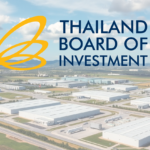Essential Certifications for Setting Up a Factory in Thailand
Setting up a factory in Thailand requires not only compliance with local regulations but also adherence to international standards. Whether your business is in manufacturing, food processing, or another industry, obtaining the right certifications is essential. These certifications—such as ISO 9001, ISO 14001, GMP, and others—are critical for ensuring your factory operates efficiently, safely, and in line with both Thai and global requirements. In this guide, we’ll outline the most important certifications for establishing a factory in Thailand and explain how SparkUp Solutions can assist in meeting these requirements effectively.
Key International Certifications
1. ISO 9001: Quality Management System Certification
ISO 9001 is an internationally recognized standard for Quality Management Systems (QMS). It ensures that your business consistently delivers products that meet customer expectations and comply with relevant regulations. For companies setting up factories in Thailand, ISO 9001 is essential for maintaining high product quality and building a strong reputation in both local and international markets.
Key Benefits of ISO 9001:
- Streamlined processes that reduce errors and boost efficiency.
- Improved customer satisfaction through consistent product quality.
- Increased opportunities to win contracts, including government tenders.
- Alignment with both Thai and international quality standards.
Implementing ISO 9001 is especially valuable during the early stages of factory setup, as it helps structure your operations to ensure consistently high-quality output.
2. ISO 14001: Environmental Management System Certification
As sustainability becomes more important, ISO 14001 certification demonstrates your factory’s commitment to environmental responsibility. This standard offers a structured approach to reducing waste, managing resources efficiently, and complying with environmental laws in Thailand.
Why ISO 14001 Matters:
- Ensures compliance with Thai environmental laws and global standards.
- Enhances your company’s reputation by showcasing your commitment to sustainability.
- Lowers operational costs through better resource management and waste reduction.
Industries with significant environmental impacts—such as manufacturing and heavy industries—can benefit greatly from obtaining ISO 14001 certification.
3. GMP Certification: Good Manufacturing Practices
GMP (Good Manufacturing Practices) is a must-have certification for industries such as food production, pharmaceuticals, and cosmetics, where product safety is a primary concern. This certification guarantees that your factory follows strict guidelines to produce safe and high-quality products.
Key Requirements of GMP:
- Facilities designed to maintain hygiene and safety standards.
- Procedures that ensure consistent product quality.
- Ongoing staff training to maintain compliance and uphold quality control standards.
In Thailand, GMP certification is essential for companies looking to export products, particularly in the food and pharmaceutical sectors. This certification also helps factories meet both local and international safety standards, ensuring access to global markets.
4. ISO 22000: Food Safety Management Certification
Thailand is a major player in the global food industry, and ISO 22000 certification is critical for food manufacturers. It combines the principles of Hazard Analysis and Critical Control Points (HACCP) to ensure food safety across the supply chain.
Why ISO 22000 is Important:
- Ensures adherence to strict food safety standards.
- Reduces the risk of contamination and product recalls, protecting your brand.
- Eases access to international markets like the EU and USA, where food safety regulations are stringent.
ISO 22000 is a must for businesses involved in food production, providing vital guarantees that products are safe for consumers worldwide.
5. ISO 45001: Occupational Health and Safety Management
The safety of workers is paramount when setting up a factory in Thailand. ISO 45001 certification helps you create a safer working environment by identifying workplace hazards and implementing controls to mitigate risks.
What ISO 45001 Offers:
- A structured approach to managing and reducing workplace risks.
- Compliance with both Thai labor laws and international safety standards.
- Fewer workplace accidents, leading to higher productivity and reduced downtime.
By obtaining ISO 45001, your factory will not only meet safety regulations but also foster a healthier and more efficient workplace.
6. ISO 27001: Information Security Management Certification
In today’s digital age, protecting your business’s sensitive information is critical. ISO 27001 certification provides a clear framework for managing data security risks, particularly in industries that handle sensitive client or proprietary data.
Advantages of ISO 27001:
- Safeguards intellectual property and sensitive customer data.
- Ensures compliance with international data protection standards.
- Builds trust with clients and partners through a strong commitment to data security.
For factories involved in electronics, automotive, or pharmaceutical sectors, where data protection is crucial, ISO 27001 helps safeguard your business and its assets.
Local Certifications for Factory Setup in Thailand
In addition to international standards, factories in Thailand may need to comply with local certifications and permits. These include:
- Factory Operation License (Ror.Ngor.4): This license, issued by the Department of Industrial Works, is mandatory for most industrial operations in Thailand. Without it, your factory cannot legally operate.
- Environmental Impact Assessment (EIA): Certain industries, particularly those with significant environmental impacts, must complete an EIA to ensure compliance with local environmental regulations.
- FDA Approvals: If your factory is involved in producing food, pharmaceuticals, or cosmetics, obtaining FDA approvals is necessary. This certification ensures that your products are safe and meet the stringent requirements set by Thai authorities.
Securing these local certifications is crucial for ensuring that your factory operates in line with Thai legal and regulatory requirements.
Ready to Set Up Your Factory in Thailand?
Let SparkUp Solutions help you make the process easy. Whether it’s zoning laws, BOI promotion, or environmental rules, our team will guide you every step of the way.
Contact us today to schedule a consultation and take the first step toward establishing your factory in Thailand





